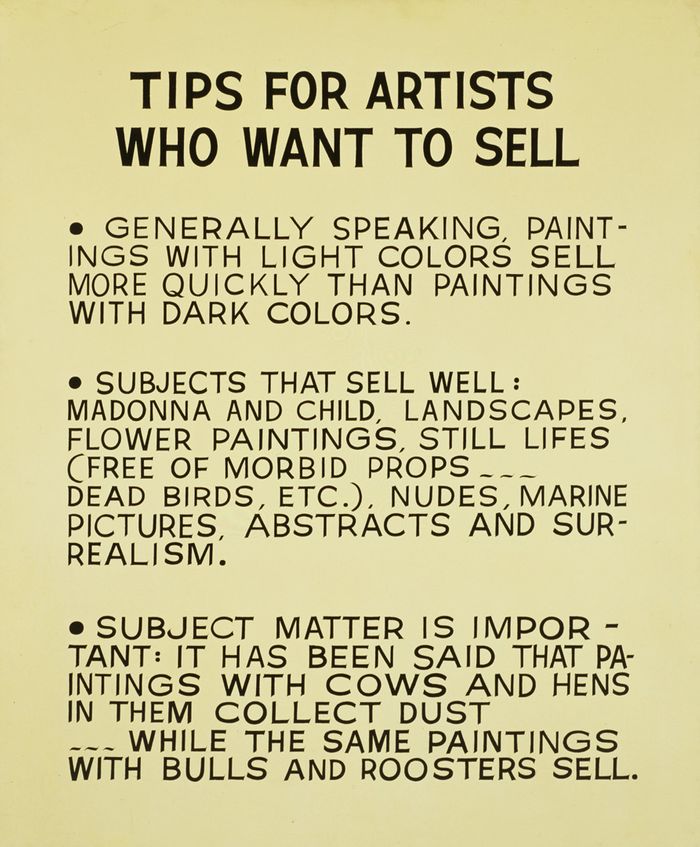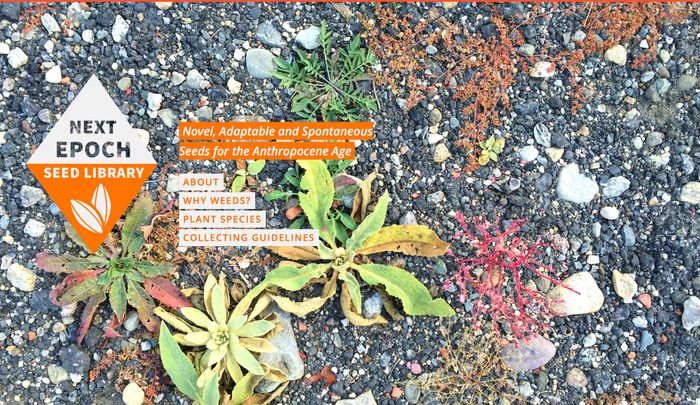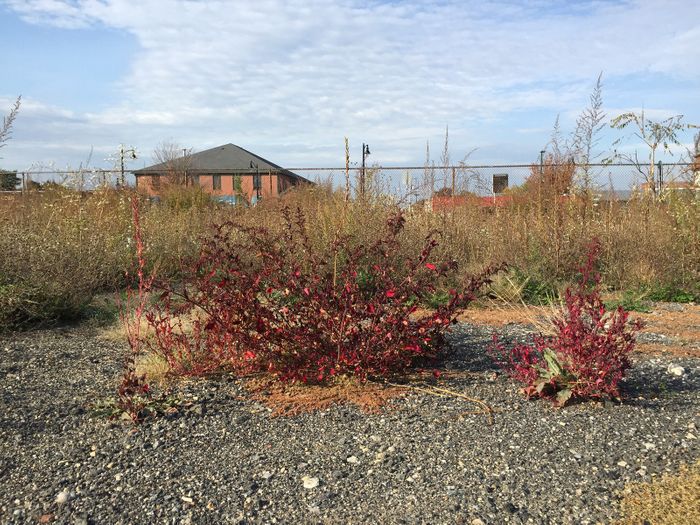A small collection of artworks by John Baldessari, an amazing artist who died yesterday. If you’re unfamiliar with his work, A Brief History of John Baldessari is worth watching too.

A small collection of artworks by John Baldessari, an amazing artist who died yesterday. If you’re unfamiliar with his work, A Brief History of John Baldessari is worth watching too.

I’ve collected some images that were circulating on MLKSHK recently, based on a Tweet by Brett O’Connor.
Update: MLKSHK is now MLTSHP.
(tweet now deleted)

I made Ellie and Anne a website for their project, the Next Epoch Seed Library.

If the website design looks familiar, it’s because I used the same WordPress theme I developed for Ellie’s website.
See also: Ellie’s essay about the project
Ellie on why killing weeds is counterproductive:
Is it really worth raging against the geographical pedigree of a plant introduced 200 years ago if it’s functioning to stabilize soil, feed late season pollinators, generate oxygen, cool the ground, and improve human mental health? Sure, there are villainous weeds out there (think Kudzu), but it’s all context-based, and plant communities that suffer from being overrun by a weedy villain are often not in the best shape to begin with.

Make sure you scroll all the way down to see all the lovely weed portraits.
See also: Next Epoch Seed Library on Ellie’s website.
Hack the planet your personal fitness device!!
Does your lifestyle prevent you from qualifying for insurance discounts? Do you lack sufficient time for exercise or have limited access to sports facilities? Maybe you just want to keep your personal data private without having to pay higher insurance premiums for the privilege?
Unfit Bits provides solutions. At Unfit Bits, we are investigating DIY fitness spoofing techniques to allow you to create walking datasets without actually having to share your personal data. These techniques help produce personal data to qualify you for insurance rewards even if you can’t afford a high exercise lifestyle.
Made by my friends Tega and Surya. Also be sure to download the DIY guide from Biononymous.me.
This Ursula K. Le Guin story is so good!
No known dialect of Ant employs any verbal person except the third person singular and plural and the first person plural. In this text, only the root forms of the verbs are used; so there is no way to decide whether the passage was intended to be an autobiography or a manifesto.
Seeds 14-22
Long are the tunnels. Longer is the untunneled. No tunnel reaches the end of the untunneled. The untunneled goes on farther than we can go in ten days [i.e., forever]. Praise!
The mark translated “Praise!” is half of the customary salutation “Praise the Queen!” or “Long live the Queen!” or “Huzza for the Queen!”—but the word/mark signifying “Queen” has been omitted.
Thanks to Matt Webb for transcribing it from The Compass Rose. You can also listen to Le Guin reading the latter half of the essay (with an additional footnote!) in a 2014 talk.
Link via Hugo Reinert
My friends Taeyoon and Roon have been working on a project called In Search of Personalized Time. Last year they were collaborating remotely, with Taeyoon working on-site at a festival in Seoul coordinating with Roon here in New York on a very different timezone.
It was, as if, we are living in someplace else—in-between New York and Seoul—and doesn’t completely belong to either of those two places.
Similarly, in our perceptions, those conference calls were happening not in New York or Seoul’s local time, but possibly elsewhen—sometime else, that the participants from both places share momentarily.
Perhaps, we could create a time device, that shows your personal time, so that you can interact with it without syncing back with the GMT. Then perhaps, we could network these devices, and think about how to negotiate these personal times from person to person. then perhaps, we could create an alternative time-system, a consensus time, the bottom up approach towards deciding what time it is now.

After showing the piece at LACMA earlier in the year, they participated in the Art Book Fair this past weekend along with Sam Hart, editor of AVANT.org.
After syncing the devices to their personal clocks, the volunteers were asked to spend the afternoon on a “scavenger hunt for time,” taking the Art Book Fair as an opportunity to begin new conversations about their sense of lived time and the significance of publication as an act of preserving a particular moment.